Birds are some of the most fragile types of animals. This can be hard to believe considering that some birds can outlive their owners. However, most people are familiar with the image of a miner carrying a canary into a mine with them. The fact that the birds would die if the air in the tunnels was unhealthy, effectively serving to warn the miners well before it became deadly for humans, is a testament to how sensitive these birds can be.
Pet birds are easily affected by unwholesome smells, similar to wild birds. Common household appliances and items such as Teflon pans, aerosol sprays and even innocuous furniture polish can be fatal for birds. One of the best practices when dealing with substances that may give off pungent odors is to use it in airy areas far away from your birds.
Pet birds have a natural inclination to chomp and it can be a major issue. When a bird chomps on soldered joints on welded items, lead poisoning is a common result. Also, birds do have a penchant to chew on potted plants. Despite popular sentiments, poinsettia plants are not deadly. It is better to be safe than sorry so do err on the side of caution should you be uncertain if a plant is poisonous for your pet bird and remove it from the reach of your pet. A small pot of innocuous parsley can be helpful to the bird to overcome the desire of nibbling on houseplants as it is a safe substitute.
Fresh food that is fed to your birds will do them a whole lot of good; however, food like coffee, chocolate and avocado are fatal for birds and they should never be given such foods.
During festive seasons, many families tend to bring trees into their homes. Many people associate a tree with a birds natural habitat and assume that their birds will enjoy climbing it. It is true that birds might enjoy this exercise, many pine trees could have had preservatives or chemicals administered and prove fatal to your pet. In addition, ornaments and electric lights can pose a safety hazard to your birds.
If your bird does not have its wings clipped, there are quite a few additional safety concerns to be addressed. Firstly, all glass doors and windows should be shielded one way or another. A good bet is achieved by blinds, shades or curtains. Placing safety decals on windows and glass is another option, besides curtains or blinds, to alert the bird that the glass is there and help avoid serious or fatal accidents. You should treat other large reflective surfaces and mirrors in a similar manner when your pet bird is released from its cage.
Standing water can pose as a form of danger as well. The bird can meet its untimely end in a toilet bowl or full kitchen sink in a few seconds. Cooking while a bird is out of its cage is not advised, especially if you have an uncovered pot on the stove.
Finally, always be mindful of the whereabouts of your bird even if its wings are clipped. Even a bird with clipped wings can soar for a considerable distance if there is an upward breeze. It is easy to forget that your bird is perched on your shoulder when your doorbell suddenly rings and you rush to answer it but you must remember never to carry your bird to an open door regardless of whether or not its wings are clipped.

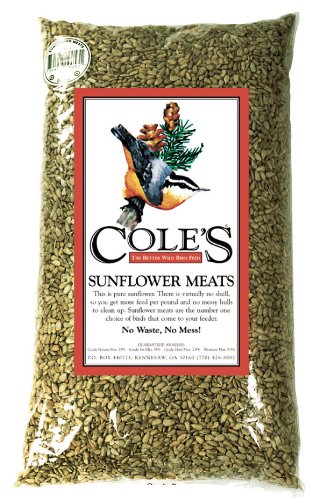 How to Attract European Goldfinches in the Garden
Goldfinches are a real delig
How to Attract European Goldfinches in the Garden
Goldfinches are a real delig
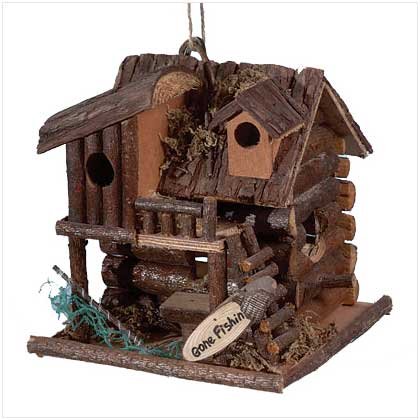 Bird Houses For Sale
Buyer and seller tips when looking for bird ho
Bird Houses For Sale
Buyer and seller tips when looking for bird ho
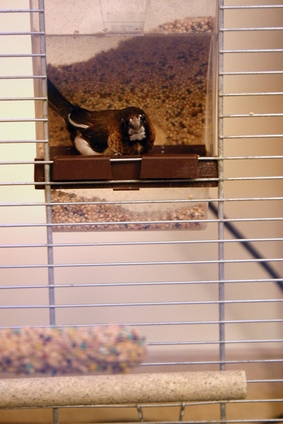 Homemade Indoor Bird Cages
Homemade Indoor Bird Cages
Homemade In
Homemade Indoor Bird Cages
Homemade Indoor Bird Cages
Homemade In
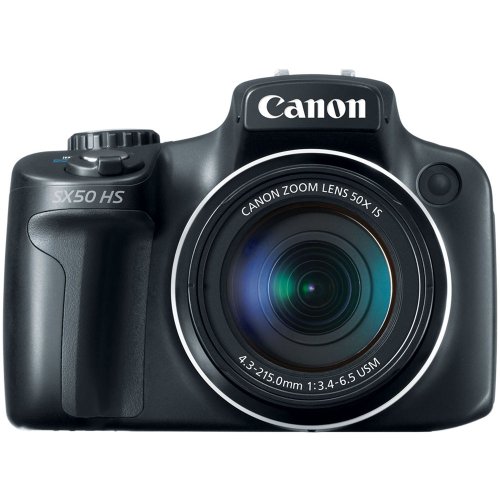 Bird Watching: Beautiful Birds Seen in Western Australia
Collection of Beautiful Bird
Bird Watching: Beautiful Birds Seen in Western Australia
Collection of Beautiful Bird
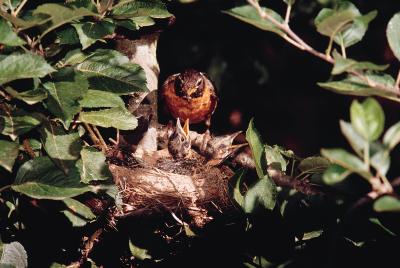 How to Help Baby Birds That Have Fallen Out of the Tree
How to Help Baby Birds That Have Fallen Out of
How to Help Baby Birds That Have Fallen Out of the Tree
How to Help Baby Birds That Have Fallen Out of